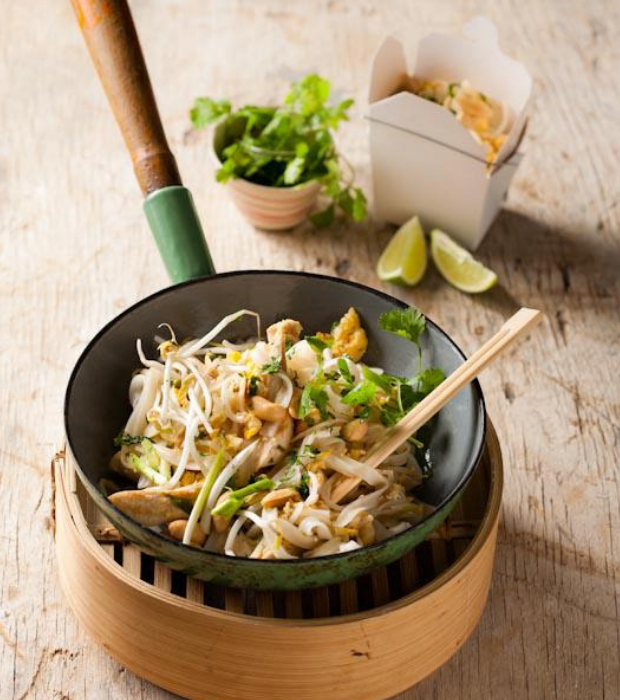ALSO READ: These 5 things are the only ingredients legally allowed in boerewors
Monosodium Glutamate represents the purest form of umami, the fifth basic taste. It is not quite the same as saltiness, but rather represents a rich, savoury flavour that we recognise in meat, mushrooms or soy sauce. It is an amino acid that contains sodium and is a cousin of ordinary table salt or sodium chloride.
As a food ingredient, MSG has been used in Asian cooking for hundreds of years in the form of kombu, a dried seaweed that is added to soups and broths. If you’ve ever enjoyed pad thai noodles, salmon roses with Japanese mayo or Pringles chips, chances are you’ve been craving the MSG.
Monosodium glutamate, or MSG as it is often referred to, has long been demonised and vilified as the source of headaches, indigestion and numbness, despite very little scientific evidence to support these claims. We take a look at the flavour additive and learn some surprising facts:
1. It’s completely natural
MSG is a natural compound that is found in many food ingredients such as tomatoes, seaweed, cheese and high protein foods. The compound was first identified in late 1866 by the German chemist, Karl Heinrich Ritthausen and in 1908, the commercial process of MSG production was identified by Kikunae Ikeda of Tokyo Imperial Universty. Professor Ikeda started his company Ajinomoto, which helped to popularise the flavour compound across the globe.
2. It can help you reduce your salt intake
The chemical structure of MSG means that the total sodium content is about one-third of that of ordinary salt. Substituting MSG in your cooking can help to reduce the overall sodium content, without sacrificing any of the delicious flavours in your cooking.
3. There has been no scientific proof of side effects of consuming MSG
Most claims of MSG “allergies” and reactions have been largely anecdotal, and have not been reproduced under scientific conditions. Regulators and scientists have conducted numerous studies, in which none have shown that MSG is harmful to your health. Food bodies such as the United States Food and Drug Administration, the United Nations Food and Agriculture Organization and the World Health Organization have all deemed monosodium glutamate as safe for human consumption. And while it’s true that some diners have reported ill health, the exact cause of these symptoms remains elusive.
4. MSG can help some people make healthier food choices
Because MSG increases the depth of flavour, it can help to make low-fat foods taste more satisfying, and can make healthier meals taste more rewarding. There has also been some success in using MSG as a flavouring in meals for older people who may have a diminished sense of taste as they age.
So why does MSG have such a bad reputation?
The years of bad press and the proliferation of myths around so-called “Chinese Restaurant Syndrome” have not helped the case for MSG. In the United States, in particular, the culture of Asian foods have long struggled with the stigma of being foreign and in some subversive way, maybe even dangerous. “When people don’t understand something…all of the sudden it becomes exotic, mysterious, and easy to attack.” says cookbook author Andrea Nguyen.
The worst thing that can be said for MSG is that it has been used to make nutritionally empty food products and fast food items to taste better than they actually are for us. With the addition of MSG, a processed food product can appear to be more delicious and desirable, despite having very little real nutrients and vitamins.
So perhaps it’s time to consider using MSG in your own home cooking? World famous chefs such as Heston Blumenthal, David Chang and Grant Achatz are outspoken in their support of the tasty little crystal. Some say that MSG is the secret ingredient that every fancy restaurant uses, but no one talks about.
Acclaimed chef and journalist, Anthony Bourdain has said, “I think (MSG) is good stuff,” he said in a 2016 episode of “Parts Unknown” filmed in China. “I don’t react to it — nobody does. It’s a lie.”
“You know what causes Chinese restaurant syndrome?” he added as he walked through the streets of Sichuan. “Racism.”
RECIPE: Grilled tofu in peanut and coconut sauce
Here are some MSG products to try in your kitchen today: Maggi Seasoning Sauce, Aromat seasoning and Robertson Zeal seasoning. Remember, less is more so go slowly in the beginning.
What are your thoughts on MSG? Share them with us in the comments below!
ALSO READ: Supermarket milk tarts: We found the best one and it’s actually cheaper than all the others
This article in no way represents health advice or recommendations. Food24 did not receive any financial sponsorship or advertising revenue from this article.

